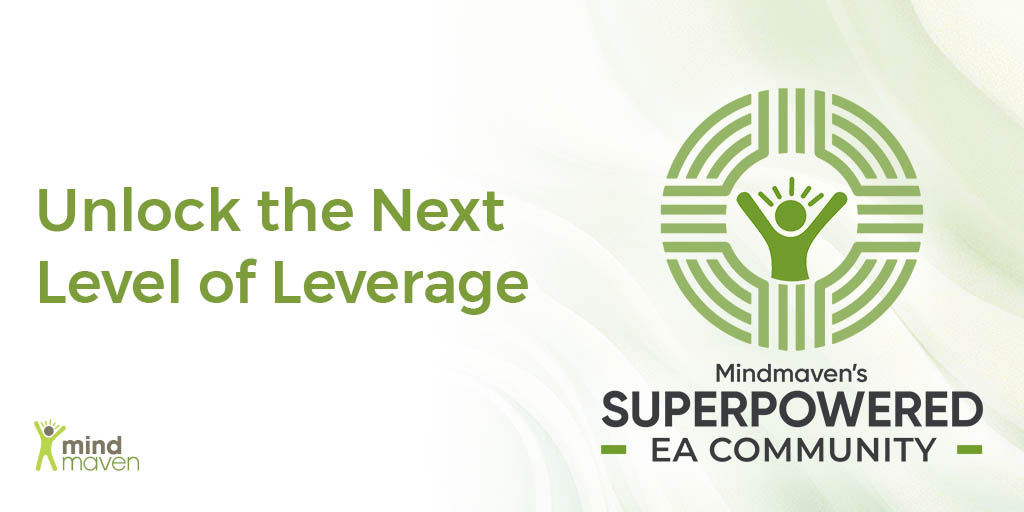
If you’re a busy professional, entrepreneur, or CEO, chances are you’ve asked yourself: Do I really need an Executive Assistant?
Or maybe you’re wondering if this is the right career path for you, but find yourself asking: What does an Executive Assistant actually do?
Whether you’re thinking of hiring one or becoming one, this article will help you understand the role, responsibilities, and powerful impact of a great Executive Assistant.
What Are the Duties of an Executive Assistant?
The duties of an Executive Assistant go far beyond booking flights and taking notes.
At a foundational level, Executive Assistants handle key administrative tasks like scheduling meetings, managing calendars, handling emails, coordinating travel, and preparing reports.
But they can also play a pivotal role in supporting senior executives at a strategic level and ensuring the smooth operation of an organization. Their duties are wide-ranging and require a blend of administrative expertise, communication skills, and strategic thinking.
Here are just a few examples of the duties of an Executive Assistant:

Essentially, Executive Assistants ensure that everything behind the scenes is handled so that executives can focus on high-value work.
What Is an EA Responsible For?
Executive Assistants are responsible for protecting an executive’s time, energy, and attention.
This includes:
- Managing and prioritizing the executive’s inbox (sometimes called Inbox Shadowing)
- Prepping for and debriefing after meetings
- Tracking commitments and making sure follow-ups actually happen
- Creating space for “deep work” by blocking time and managing distractions
- Acting as a gatekeeper to reduce interruptions and low-priority tasks
- Coordinating communication across teams or with external partners
In short: A great Executive Assistant helps their executive spend more time in their zone of genius, focusing on what only they can do.
What Can an Executive Assistant Do for Me?
If you’re a business owner or CEO, the short answer is: an Executive Assistant can help you reclaim your time and sanity.
Think about all the small tasks that drain your energy each day: managing your inbox, booking meetings, remembering to follow up, organizing your travel, taking meeting notes, and coordinating with your team.
Now imagine if someone else handled all of that – and did it so well that you barely had to think about it. That’s what a great Executive Assistant does.
They give you back invaluable hours every week, reduce stress, help you follow through consistently, and make you look like a more thoughtful and responsive leader.
What Are the Top 3 Skills of an Executive Assistant?
While different roles may look for different specialities, the top 3 skills of an Executive Assistant that are consistently cited as being the most critical for high-performance are:
1. Communication Skills
Great Executive Assistants are master communicators who excel in both written and verbal communication.
They serve as the primary point of contact between executives and internal or external stakeholders, draft professional correspondence, and ensure clear, effective information flow.
2. Organizational Skills
Strong organizational skills are the backbone of an exceptional Executive Assistant.
They must be adept at managing calendars, coordinating meetings and travel, maintaining accurate records, and keeping multiple projects running smoothly and on time.
3. Time Management
Executive Assistants juggle numerous time-sensitive tasks daily.
Effective time management allows them to prioritize responsibilities, meet deadlines, and support executives efficiently without becoming overwhelmed
Executive Assistant To-Do List Template
Want to improve your communication and have a smoothly running schedule?
Download our EA Calendar Maintenance Best Practices and Checklist.
This template helps Executive Assistants master the process of scheduling and optimizing their executive’s time and workload to achieve their goals and priorities.
How Much Do Executive Assistants to CEOs Make?
Compensation for Executive Assistants can vary widely based on experience, industry, and geographic location.
In the U.S., Executive Assistants to a CEO can expect a range between $70,000 to $100,000 per year.
Exceptionally experienced and high-performing Executive Assistants – especially those supporting founders, investors, or executives in fast-paced industries like tech, finance, or startups – can command even higher salaries beyond $100,000, particularly when they take on strategic responsibilities.
For a Philippine-based virtual assistant, you can expect to pay around $8-10 USD per hour.
And when you consider the hours of time, energy, and mental bandwidth they return to a CEO, most leaders agree: a great Executive Assistant is one of the most valuable hires they’ll ever make.
What Other Jobs Can an Executive Assistant Do?
The Executive Assistant role is often a launchpad for bigger opportunities.
Executive Assistants get a front-row seat to how leadership works. They learn strategy, communication, problem-solving, and time management from the inside out.
It’s one of the most underrated career accelerators out there!
Many Executive Assistants go on to become:
- Chiefs of Staff
- Operations Managers or Directors
- Project Managers
- Engagement Managers (a Mindmaven concept focused on maximizing executive leverage)
- Business Partners or Client Success Leaders
Reach Your Highest Potential: Superpowered EA Community

So, what does an Executive Assistant actually do?
They keep leaders focused, organized, and moving forward. They create time, reduce friction, and turn chaos into clarity.
Whether you’re looking to hire an Executive Assistant or grow into the role yourself, one thing is clear: the future of leadership includes having someone extraordinary by your side.
Ready to reach your fullest potential?
We’d love to welcome you to our brand-new Superpowered EA Community!
Our monthly subscription platform provides a space for ambitious assistants of all levels to come together to learn, grow, and create real leverage.
For just $10/month, the Superpowered EA Community unlocks access to:
- A private Slack forum to connect, ask questions, and share advice
- Exclusive EA Library content – including actionable templates, playbooks, and more
- Monthly live sessions hosted by a Mindmaven coach to refine their skills
Because when the right support is in place, everything – and everyone – works better.


